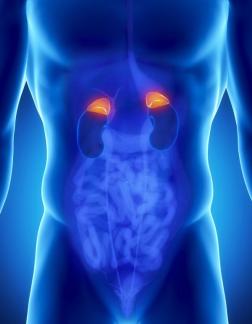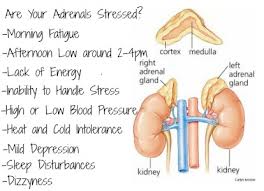This article was sourced from Women’s Best Health
By: Dr. Marianne Beck
We live in a hectic and “stressed out” world. Life seems to move at a faster pace than ever, leaving us no time for ourselves—no time to relax or just have fun. Everywhere you look, people are ‘running around like chickens without a head”, going from one errand to another, driving to work and sitting in traffic, dealing with the kids, the in-laws and the ‘outlaws”, giving up on taking vacations, talking and texting on cell phones and computers 24/7, Tweeting and FaceBooking into the wee hours of the night—the list goes on and on. We seem to be “dragging’ all the time waiting for the weekend and when the weekend comes, we collapse on the couch– too tired to do anything. “Stressed to the max” and “I’m on my last nerve” are now common expressions in society. But, this comes at a price. Constant and chronic stress takes a toll on our health.
Stress comes in many forms. Emotional stress such as overwork, a family death, divorce, loss of a job, anger, fear, lack of sleep etc. There are dietary stresses from consuming alcohol, eating too much sugar, fast foods, food additives and colorings and eating inflammatory foods such as gluten, dairy and soy. And then there is stress in the form of tissue damage, inflammation and pain from head injuries, whiplash, liver toxicity, gastrointestinal infections, arthritis, surgery and illness. When all of these stressors come together in an individual, the adrenal glands can not keep up the production of stress hormones. They eventually “burn out” and chronic illness ensues.
Your adrenal glands are walnut size glands that sit on top of each kidney. Your adrenal glands help you cope with stress and survive. Your resiliency, energy, endurance and your very life depend on the proper functioning of your adrenal glands. When you are under stress, whether good or bad, your adrenal glands produce a surge of cortisol, DHEA and adrenaline which is protective in the stress response. But, when stress is ongoing, excessive and poorly managed, cortisol levels continually rise. If the stress continues, your adrenals can not keep producing adrenal hormones and you head toward adrenal burnout!
Why Should I be Concerned with Adrenal Exhaustion?
Most doctors never think about the chronic stress response, adrenal exhaustion and how they cause major health problems in our society. Cortisol is responsible for so many of the body’s functions. Low cortisol and DHEA levels impact the female hormone production of progesterone and estrogen and testosterone function in males. Female hormone symptoms such as night sweats, hot flashes, low sex drive, infertility, mood swings, craving for sweets and other menopausal symptoms can be related to adrenal malfunctioning. Abnormal cortisol levels are also related to increased back, neck and joint pain as well as osteoporosis and arthritis. Our adrenal glands also are responsible for protein, carbohydrate and fat metabolism and the ”muffin top” associated with middle age stress! Proper cortisol and DHEA levels are necessary for normal brain function, memory, learning and proper sleep cycles. Imbalances in cortisol and DHEA lead to depression and anxiety. Since one of cortisol’s main jobs is to raise glucose levels, high cortisol is associated with high blood sugar and diabetes and metabolic syndrome (pre-diabetes). Chronic adrenal stress effects the functioning of your hypothalamus and pituitary gland which direct the production of thyroid hormone.
The good news is that you can decrease stress with exercises and in relation to Pilates – here is how and why:
Breathing techniques
Breathing is the life force of the Pilates method. Breath promotes focus, oxygenates the blood, improves circulation and encourages relaxation.
Imagery
The use of imagery fuels creativity. The visualization used in Pilates imagery helps to calm the mind and encourage concentration providing better movement and anatomical understanding.
Concentration and Mindfulness
Concentration and mindfulness helps keep distracting and stressful thoughts at bay. With the promotion of precision in movement through concentration and mindfulness, individuals will experience advancement in movement clarity and execution. Confidence and a positive sense of well-being can be directly improved.
Body Awareness
The use of imagery, concentration, and mindfulness in Pilates will improve body awareness. Body awareness heightens a conscious communication between body and mind. Awareness allows for strong self-perception and self-management of what is and is not productive for the body both physically and emotionally.
Meditation and Harmony
With the combined efforts and integration of breathing, imagery, concentration, mindfulness and body awareness, a Pilates practice can transform into a meditation practice that can help promote the maintenance of a balanced and harmonious lifestyle. A Pilates session is a sacred time for oneself to place everything else aside several times a week and engage in an energizing and relaxing meditation of body, mind and spirit.
Have you tried Pilates with us at The Hundred Pilates Studio? Are you seeing an improvement in your stress levels and level of happiness and health in general? Please share with us your comments below – we would love to hear back from you and any tips you would like to share.






